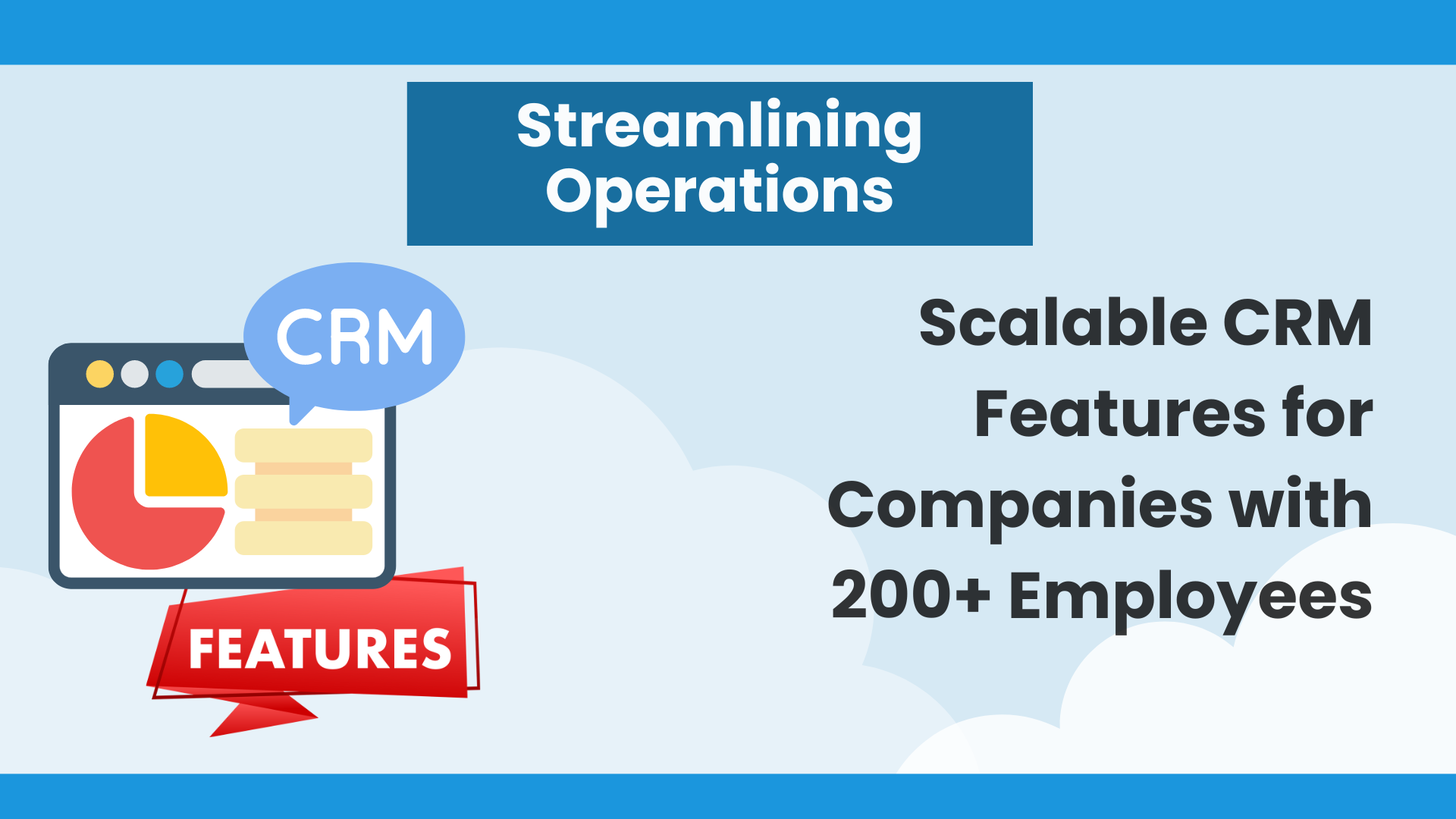Discover how scalable CRM features can help streamline operations for companies with 200+ employees.
Identifying Challenges Faced by Large Corporations
Imagine running a company with hundreds of employees – it's a success story! But with great size comes great… customer service complexity. Keeping track of interactions, leads, and preferences across departments can quickly turn into a tangled mess. This is where a powerful Scalable CRM (Customer Relationship Management) solution swoops in to save the day, transforming customer chaos into a well-oiled growth engine.
The Struggles of Big Business: Why Scalable CRM Matters
Large corporations face unique challenges when it comes to customer relationships. Information gets siloed, leads fall through the cracks, and decisions lack the power of real-time data. Here's how a scalable CRM can address these pain points:
- The Fragmented Customer: Imagine a customer calling customer service with a question, only to be told "let me transfer you to your sales rep" who has no context! A scalable CRM acts as a central hub, storing all customer interactions and data in one place. Sales, marketing, and support teams see the complete customer journey, ensuring a seamless and personalized experience.
- Lead Avalanche: Without a proper system, promising leads can get lost in the shuffle. A scalable CRM streamlines lead management. It assigns leads to the right reps, tracks progress, and automates follow-up tasks, so no hot opportunity goes cold.
- Flying Blind on Performance: Making strategic decisions based on gut feeling? Not ideal. Scalable CRMs provide real-time analytics and reporting on sales and marketing efforts. Companies can see what's working, what's not, and optimize their strategies for maximum impact.
- The Mystery Customer: It's hard to personalize the customer experience if you don't understand their behavior and preferences. Scalable CRMs empower companies to segment their customer base and tailor communications. Imagine sending targeted offers instead of generic blasts – that's the power of customer insights!
- Departmental Silos: Ever felt like different teams are working in separate universes? A scalable CRM fosters collaboration. Teams share information, workflows are automated, and everyone's on the same page. This eliminates duplicated efforts and ensures projects move forward smoothly.
These key features empower large corporations to enhance their customer relationship management and drive business growth.
Customization Options for Tailored Solutions
Every enterprise company has unique requirements and workflows. Scalable CRM solutions offer customization options that allow companies to tailor the CRM system to their specific needs. These customization options include:
- Customizable fields and data structures: Companies can create custom fields and data structures to capture the information that is most relevant to their business.
- Workflow customization: A scalable CRM enables companies to design and automate workflows based on their unique processes and requirements.
- Customized reporting and analytics: Companies can create custom reports and dashboards to track the metrics that matter most to their business.
- Integration with third-party applications: Scalable CRM solutions often offer integration capabilities with third-party applications, allowing companies to extend the functionality of their CRM system.
By providing customization options, scalable CRM solutions ensure that enterprise companies can effectively align the CRM system with their specific business needs.
Scalable CRM Implementation Best Practices
Implementing a scalable CRM solution requires careful planning and execution. Here are some best practices to ensure a successful implementation:
- Define clear objectives: Before implementing a CRM system, clearly define the goals and objectives you want to achieve. This will help guide the implementation process and ensure that the CRM system aligns with your business needs.
- Involve key stakeholders: Include key stakeholders from different departments in the implementation process to ensure buy-in and alignment across the organization.
- Provide comprehensive training: Offer training programs to educate employees on how to effectively use the CRM system. This will help maximize user adoption and ensure that everyone understands the benefits and functionalities of the CRM solution.
- Regularly review and optimize: Continuously review and optimize your CRM implementation to ensure that it meets your evolving business needs. Regularly analyze data and gather feedback from users to identify areas for improvement.
By following these best practices, enterprise companies can successfully implement a scalable CRM solution and leverage its full potential to streamline their operations.





Leave a Comment